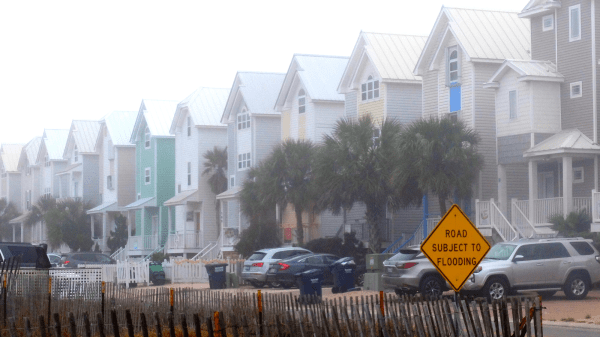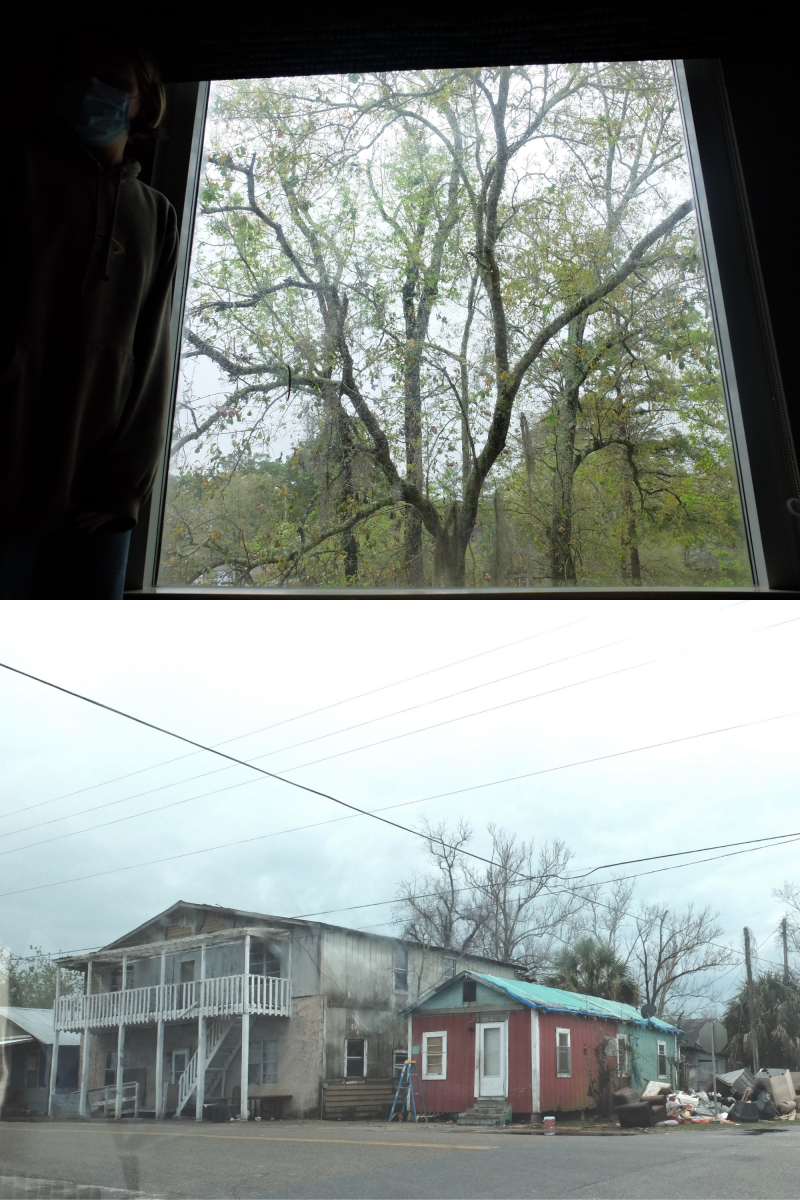Deliberative Dialogue Forums: Effectively Engaging Communities on Challenging Topics

Welcome to our blog series, CEE-Change, Together. Each month, NAAEE will post narratives from the CEE-Change Fellows as they implement their community action projects and work to strengthen environmental education and civic engagement capabilities, all supporting the mission of cleaner air, land, and water. Join us on their journey! The Civics and Environmental Education (CEE) Change Fellowship is NAAEE’s newest initiative to support leadership and innovation in civics and environmental education in North America. This ee360 program is a partnership between NAAEE, US EPA, and the Cedar Tree Foundation.
Sometimes going back to basics can transform complicated, overwhelming issues into simpler, approachable portions. A serving of honest conversation, a couple of hours’ time, and tasty snacks can put people at ease and create resolve for making local change happen. I have observed this on more than one occasion during my time as a Civic and Environmental Education (CEE) Change Fellow working on my requisite Community Action Project (CAP). My CAP is in partnership with Community Voices, Informed Choices (CIVIC), a collaborative Extension program in Florida that seeks to build community capacity to address challenging issues. In my work with CIVIC, these concerns include land use throughout Florida and water quality in the impaired Indian River Lagoon on the east-central Florida coast.
Building capacity begins with providing opportunities for community members to learn about and discuss complex concerns around land use and water quality that address a blend of environmental, social, and economic matters. These conversations, called deliberative dialogue forums, are facilitated by a moderator and use a tailored issue guide that frames the discussion. The guide aims to remove the muddle of “too much to consider” and the fear of “looking dumb” when participants discuss subjects that are often perceived as overwhelming or intimidating.
Often after a forum, people will reflect on how time in conversation passed by quickly and allowed for insight into the issue at hand. On a few occasions, participants have shared how they imagined this was how people in times before phones and the internet came together to figure things out; how a community location was often devoted to dialogue; and how today, most people feel the loss of a sense of community. Something as simple as an inclusive conversation can open people to new ideas and create connections to one another.
"In dialogue that intentionally offers space for everyone to share their thoughts and values, there’s a sense of shared humanity… a connection to what’s beyond the topic of discussion is fostered."
Deliberative dialogue forums are where civic education (the first C and last E in CEE Change) winds its roots into issues of environmental concern. The topics of water quality and land use are the visible, ground-level parts that initially bring people into dialogue. Once together, participants share their lived experiences, values, and knowledge. When people realize there is no right or wrong in a forum and that expertise comes in many forms, conversation often sinks below the surface into deeply held feelings and novel ideas for how to enact change. Forums aim to provide the space to remind community members that they are an integral part of the larger systems around them.
Of course, history clearly shows that not everyone has had the freedom to engage and that the dynamics of power (and powerlessness) still play a precarious part in who may feel safe or capable of doing so. That said, conversation is still a useful tool to connect people and bring communities together to move into active decision-making and capacity building. The acknowledgment that some voices may still not be heard remains throughout the process, and there is a constant effort to continue seeking out those not heard.
Often when exploring the human dimensions of environmental issues, there is an antagonization of approaches seen as opposites: people versus nature, economic interest contrasted with having a heart, all or nothing. Working in a socio-environmental context, that combines civic and environmental understanding, reveals these intersections of the reality faced by community members. There are no explicitly drawn lines between environmental and civic life. Life is lived in the merging of those worlds (and many more). For example, during forums on land use, conversations often start with the physical layout of the land itself. Then dialogue shifts to historical and current usage. Before long, people may share specific place-based connections they hold dear before turning to concerns about feeling powerless or fears they hold for their children or the future of their community.
After deliberative dialogue forums, CIVIC and Florida Extension remain committed to supporting these communities with additional information or tools. That said, the CIVIC program is in its early stages and the importance of building long-term relationships in these communities has risen to the forefront as a need for making this work effective.
"The human characteristic we share is the courage to tackle hard issues that initally confuse and scare us."
There is little refuting that the hardest part of this work is the soft side: building relationships through actively listening, acknowledging biases, curbing expectations, confronting fears, being honest, and striving for patience. These elements are crucial to effectively engaging community members on environmental issues that impact the well-being of the natural world and the people that are part of it. They are the tender underbelly of a complex issue that often demands change be made.
Effective community engagement around big concerns won’t develop rapidly. It will come out of dialogue steeped in a diversity of perspectives and values. Perhaps, there’s no surprise that the fortitude needed to keep pace and engage with decision-making comes from such simple methods as good conversation and refreshments.


Comments
In reply to 918 by Rebecca Franzen
Hi Anne, great question. Yes, though we have a long stretch ahead of us in continuing to strengthen relationships and build cohesive plans of action, we have seen some post-forum collaboration grow from deliberative dialogue.
One example is a water quality forum where a participant shared his concerns for the possible human health impacts on subsistence fishers eating fish from an impaired waterway. That discussion among community members, some completely unaware of local people fishing for subsistence, led to a community town hall and partnership with a local non-profit organization researching fish toxicity. From there a fishing clinic was held for local youth to connect them with water quality information and safe-fishing practices. The data that the participant, now a city commissioner, wished to gather does not yet exist at the level necessary to potentially push policy forward. But his elected position, the continuation of dialogue among an ever-broadening scope of community members, and the resolve of our combined networks moves us toward community-engaged change making one solid step at a time.
Such great insight, Mandy, on the importance of the "soft side" of this work. You mention you're in the early stages of your community engagement work with CIVIC and Florida Extension, but are you starting to see any early signs of collaborative and informed decision-making in this part of FL?
In reply to 519 by Rebecca Franzen
Thanks for your comment, Jenna. It has continually surprised me along the way how the work of healing/attending to complex issues comes down to such a simple foundation of connection and learning/supporting the basics of quality communication. It's also inspiring to me to see the various methods of doing this soft side of the hard work...it's definitely not a one-size-fits-all approach.
I wonder what you and others have seen work effectively in communities.
I love this method and vision for building community and facilitating effective community engagement! Your line "Something as simple as an inclusive conversation can open people to new ideas and create connections to one another" really resonated with me and excites me for the work that both you and others are doing in facilitating deliberative dialogue spaces!